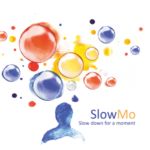
Liesbeth Tip summarises a recent umbrella review from the Mental Health Policy Research Unit, which finds that telemental health is a promising alternative for in-person therapy.
[read the full story...]
Liesbeth Tip summarises a recent umbrella review from the Mental Health Policy Research Unit, which finds that telemental health is a promising alternative for in-person therapy.
[read the full story...]
Jenna Jacob and Jermaine Dambi summarise a recent study which looks at therapeutic alliance in remote versus in-person settings.
They also present initial findings from their two active ingredients reviews which explore working alliance, collaborative goal setting and tracking for young people with depression or anxiety.
[read the full story...]
In her debut blog, Annabel Walsh summarises her #ActiveIngredientsMH project which explored the use of remote measurement technologies for depression in children and young people.
[read the full story...]
Ally Canaway blogs a systematic review which finds evidence of internet-based psychological interventions being cost-effective for depression and anxiety.
[read the full story...]
Eleana Frisira blogs about a review, which finds that video games can be interventions that help some children with autism, particularly in relation to cognitive training.
[read the full story...]
Stefanie Sturm blogs a systematic review which finds sparse, but promising support for the use of virtual reality to treat schizophrenia spectrum disorder.
[read the full story...]
Andie Ashdown and Theophanis Kyriacou summarise a systematic review on virtual reality-based assessment and treatment of social functioning impairments in psychosis.
[read the full story...]
Imogen Bell blogs about a recent randomised controlled trial of the SlowMo app, which aimed to slow down thinking patterns and correct interpretation biases in people experiencing paranoia.
[read the full story...]
A UCL MSc group of students review a US randomised controlled trial of the ‘Care Ecosystem’; collaborative care for dementia delivered by telephone and internet, which suggests improvements in quality of life and caregiver well-being, and reductions in health service use.
[read the full story...]
Natalie Berry summarises a meta-analysis which finds a limited body of research exists to support the use of NHS e-therapies for depression, anxiety and stress.
[read the full story...]